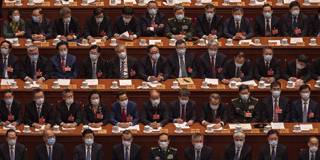
The State Legacy of China’s Success
China’s political elite remains an under-recognized driver of the country’s sustained, rapid economic growth. The Chinese economy’s transformation into a global powerhouse reflected not only the country’s post-1978 market-oriented reforms but also the history and character of its powerful government bureaucracy.
SHANGHAI – When Western economists and historians analyze China’s spectacular economic transformation over the past four decades, they tend to emphasize the productivity boom unleashed by the start of market-oriented reforms in 1978. But the role of the country’s political elite as a key driver of its emergence as an economic power has remained under-examined.